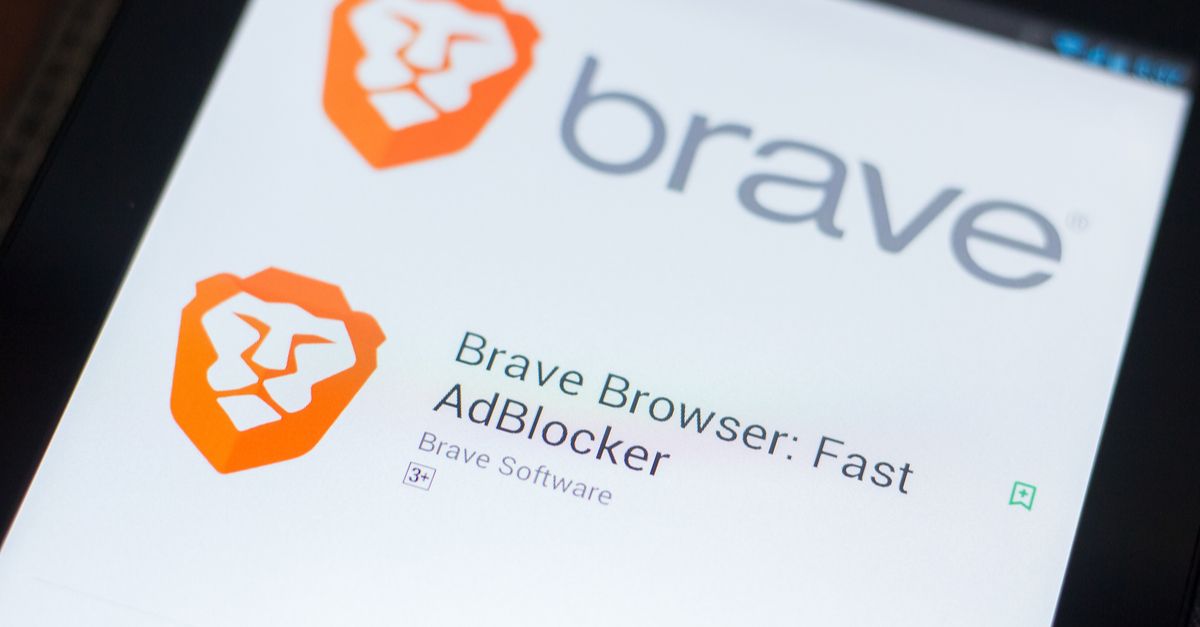Hands up who wants to sign up to receive advertising as they browse the internet?
No-one?
Yet Brendan Eich, inventor of JavaScript and co-founder of Mozilla, believes users will agree to do precisely that by downloading and using his company’s Chromium-derived browser, Brave.
As we’ve previously covered, on the surface Brave is just another desktop-cum-mobile-browser, albeit one that claims it is faster, defaults to using secure HTTPS, and comes with an integrated adblocker.
The catch with adblocking is that lots of internet publishers would go out of business if that happened on any scale, which is why Eich’s Brave offers a second option – let users opt in to receive ads that reward valued sites with a recently-launched virtual ad currency called Basic Attention Token (BAT).
It’s good for publishers, the argument goes, because the more time someone spends on a site looking at ads, the more BATs (which can be turned into real money) that site’s publisher gets from the Brave platform.
Advertisers, meanwhile, will buy BATs to participate in this platform because they will get a lot of detail on the amount of attention opt-in users are giving to ads, from which they can infer which ads are appealing. This is done on the device, is under user control and, importantly, involves no tracking.
Users also generate BATs as they browse, which are then apportioned to the sites they spend the most time on. They might even get a cut of BATs for themselves although this aspect remains a little opaque.
Because the Brave platform is based on an Ethereum-based blockchain, user anonymity will be assured (i.e. advertisers can see activity but not individuals), payments will be transparent and secure, and the anxiety afflicting today’s ad models – that they are obsessed with privacy-busting surveillance – will disappear.
What does Brave get? It’s not clear, but presumably a transaction cut from ad companies or publishers in return for running the platform on which this virtuous circulation of BAT tokens depends.
This month, the company has finally started trials to see how this radical ad system fares:
Around 250 pre-packaged ads will be rotated during this trial and users will be given a special version of the Brave browser loaded with those ads.
Later this year, this will scale to serve thousands of ads before being rolled out to all of the company’s claimed 2.7 million users.
Will the concept take off? In terms of attracting browser users, it’s hard to see the path to success. The current 2.7 million users might sound OK, but that’s nothing compared to the one billion plus Chrome browser users, through which most ads in the world are currently served.
Most of the Brave buzz came after its 2017 Initial Currency Offering (ICO), when it benefitted from the hype around anything to do with virtual currencies and blockchain. However, it’s one thing to appeal to the virtual currency crowd, and quite another to engage with users motivated by privacy features, some of which are already available on other browsers.
Publishers seem more interested though – at least 8,000 signed up in the first part of this year. At least half of them were YouTube channels, which might be Brave’s main market to begin with.
Perhaps typecasting Brave as a privacy browser is to miss the point. Rather it is a prototype for a new way for advertisers, publishers and users to relate to one another without the compromise we see in privacy today.
It will likely be a slow start, but perhaps when more users grow tired of user profiling, they may be inclined to give this new approach a chance. Until then, Brave is an experiment worth paying attention to for its ideas as much as its financial success.

James
But this is only for desktop users, I have the Android version installed in my tablet and no ads whatsoever.
Laurence Marks
Let’s see. Eich co-founded Mozilla, but he’s basing this experiment on Chromium? Any ideas why?
Alexander Fairclough
Chromium has a native ad engine.
Luis Manuel Then A. (@LuisMThen)
I use Safari, I trust Apple.